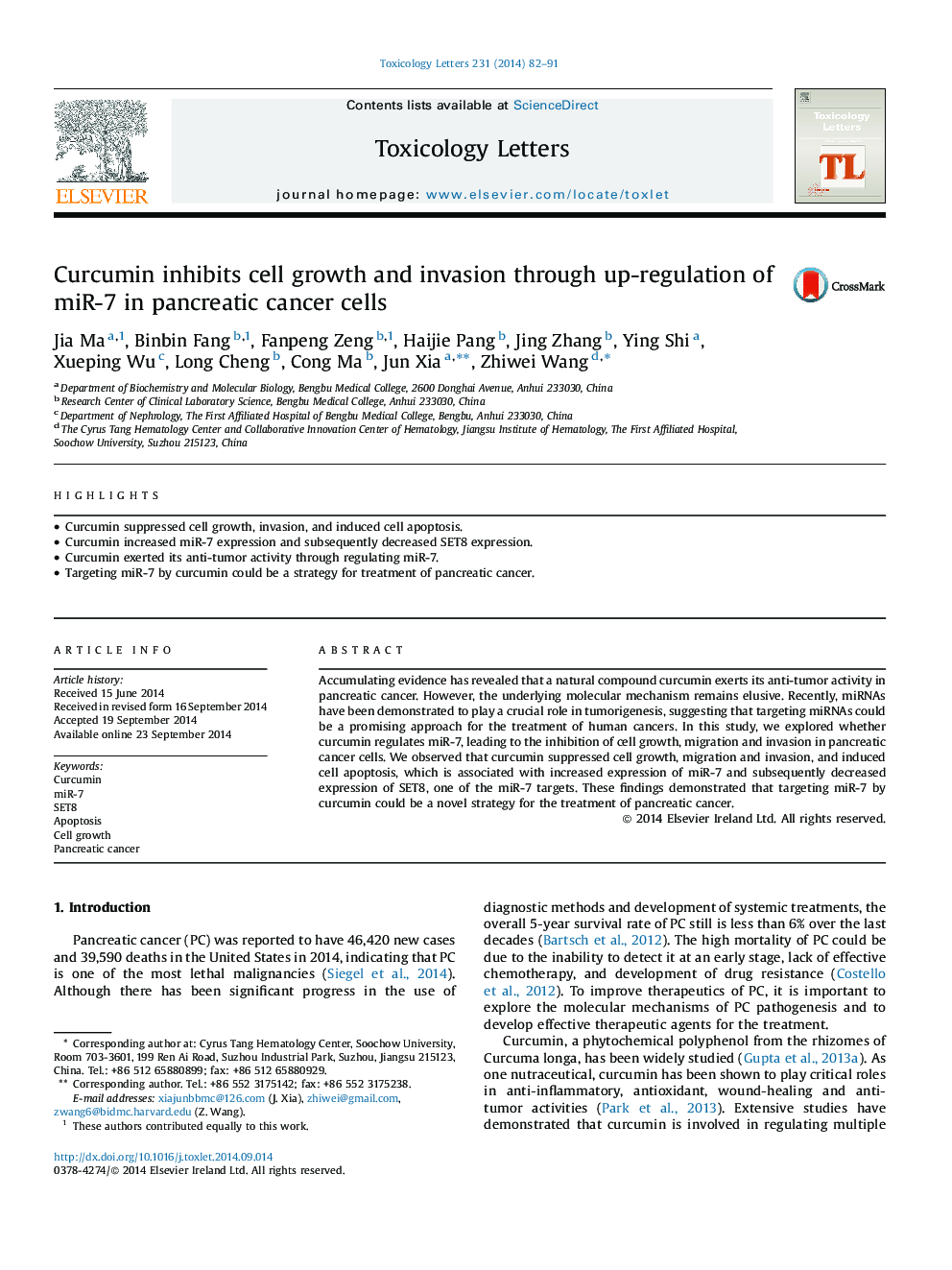| Article ID | Journal | Published Year | Pages | File Type |
|---|---|---|---|---|
| 2598894 | Toxicology Letters | 2014 | 10 Pages |
•Curcumin suppressed cell growth, invasion, and induced cell apoptosis.•Curcumin increased miR-7 expression and subsequently decreased SET8 expression.•Curcumin exerted its anti-tumor activity through regulating miR-7.•Targeting miR-7 by curcumin could be a strategy for treatment of pancreatic cancer.
Accumulating evidence has revealed that a natural compound curcumin exerts its anti-tumor activity in pancreatic cancer. However, the underlying molecular mechanism remains elusive. Recently, miRNAs have been demonstrated to play a crucial role in tumorigenesis, suggesting that targeting miRNAs could be a promising approach for the treatment of human cancers. In this study, we explored whether curcumin regulates miR-7, leading to the inhibition of cell growth, migration and invasion in pancreatic cancer cells. We observed that curcumin suppressed cell growth, migration and invasion, and induced cell apoptosis, which is associated with increased expression of miR-7 and subsequently decreased expression of SET8, one of the miR-7 targets. These findings demonstrated that targeting miR-7 by curcumin could be a novel strategy for the treatment of pancreatic cancer.
